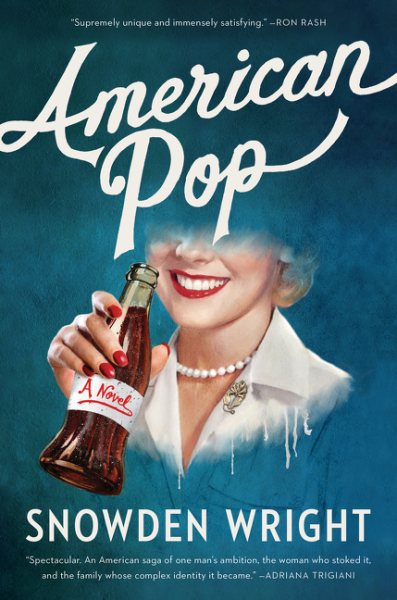by Andrew Hedglin
I was fortunate enough to get my hands on an early copy of American Pop last August. The weekend before, I had just finished making a long overdue pilgrimage to Graceland. After which, as sometimes happens in Memphis, I found myself in the lobby of the Peabody Hotel, the fabled start of the Mississippi Delta. I came back to work on Monday to find an incredible book that began where I had just been, and, in some ways, where I have always been, in the tangled legacy of the South in the 20th century.
 I was very excited to see a family tree in the first few pages. From Gabriel García Márquez’s One Hundred Years of Solitude to Yaa Gyasi’s Homegoing, some of my very favorite novels have been multi-generational family sagas, books that allow you to hear the echoes of the past. This book did not disappoint on that front.
I was very excited to see a family tree in the first few pages. From Gabriel García Márquez’s One Hundred Years of Solitude to Yaa Gyasi’s Homegoing, some of my very favorite novels have been multi-generational family sagas, books that allow you to hear the echoes of the past. This book did not disappoint on that front.
The fortunes of the Forster family are tied to the genius of paterfamilias Houghton Forster and his invention, Panola Cola, invented fictitiously in Batesville, Mississippi, in 1890. The Forsters’ good fortune in inventing PanCola, as it came to be known, relied on Houghton’s intelligence, luck, and the power of love for his soon-to-be wife Annabelle.
But the story of the Forsters is not an elevator that only goes up, and the story ends well past the end of their cola empire. The emotional center of the are the lives of the four Forster children, Montgomery, Lance, Ramsey, and Harold. Their choices, tragedies, and limitations define their family’s fate, although the vision and determination of one last Forster has the chance to hold the center together, if only somebody in charge had the wisdom to recognize the real thing when they saw it.
There is a mysterious coda to the cola chronicle, one where the truth to decoding the past traverses the lonely stretch of Highway 49 between Yazoo County and Millsaps College here in Jackson. A truth that, if found, could find the missing link–the secret ingredient, if you will–to finally understanding the Forster family legacy.
While there is melancholy infused in the center of this concoction, it would be misleading to let you think this reads like a sad, sorrowful tale. American Pop is very alive and frequently funny, drenched in irony told with a Southern drawl. There are sly winks and “fridge brilliance” to spare that reward close reading. There are references to pop culture (no pun intended) and Mississippi history that are guaranteed to make you smile. And t all starts with that party in the Peabody Hotel.
Ultimately, I can recommend American Pop as one of the best books you might read this year. Grab a can of Pan and get ready to settle in for some major fun.
Snowden Wright will be Lemuria on Tuesday, February 5, at 5:00 to sign and read from American Pop. Lemuria has chosen American Pop as one of its February 2019 selections for its First Editions Club for Fiction.


Comments are closed.